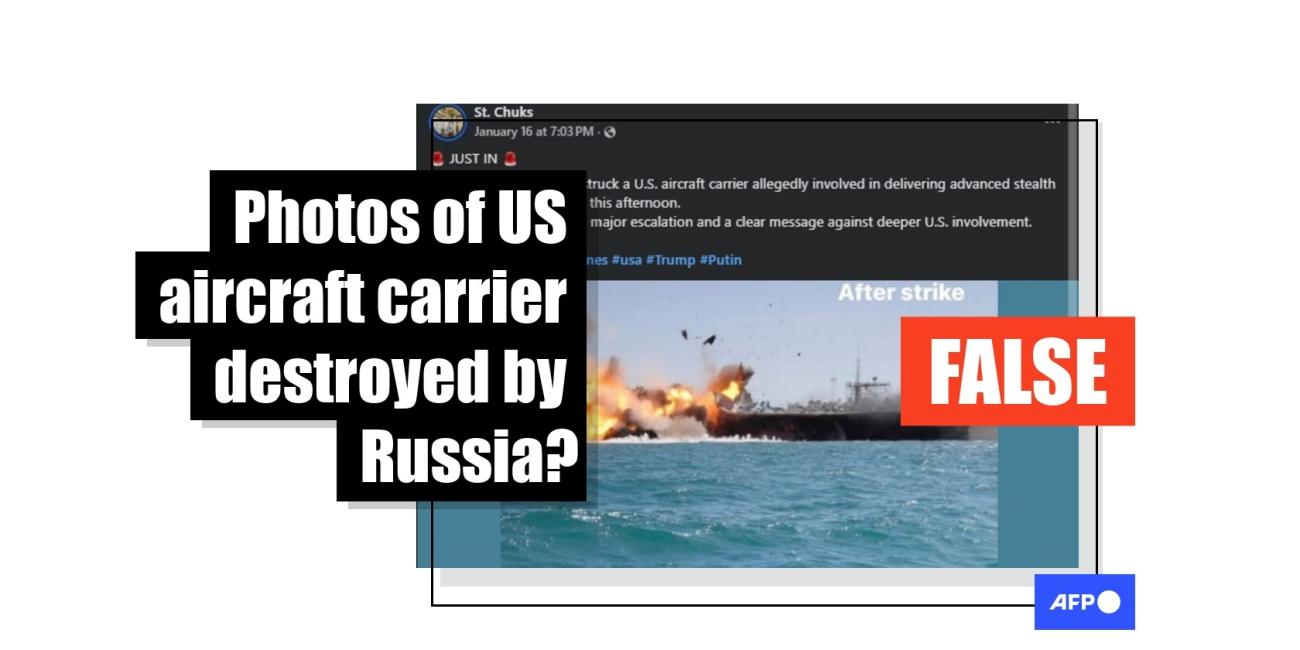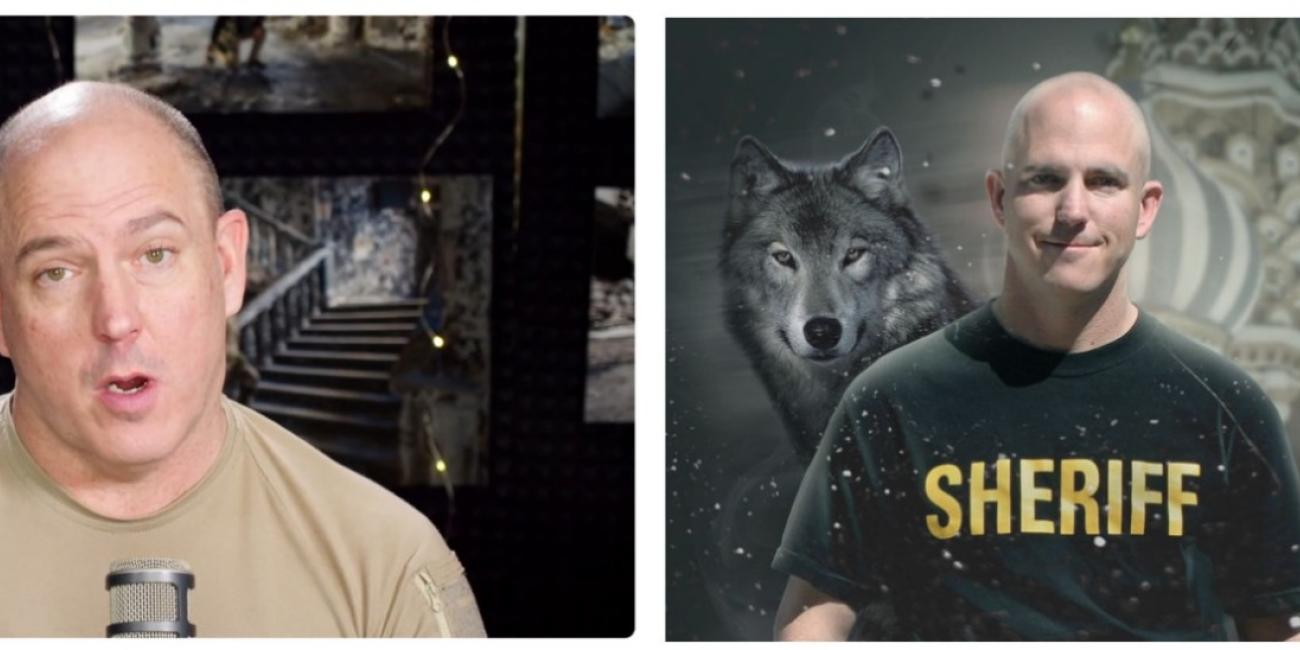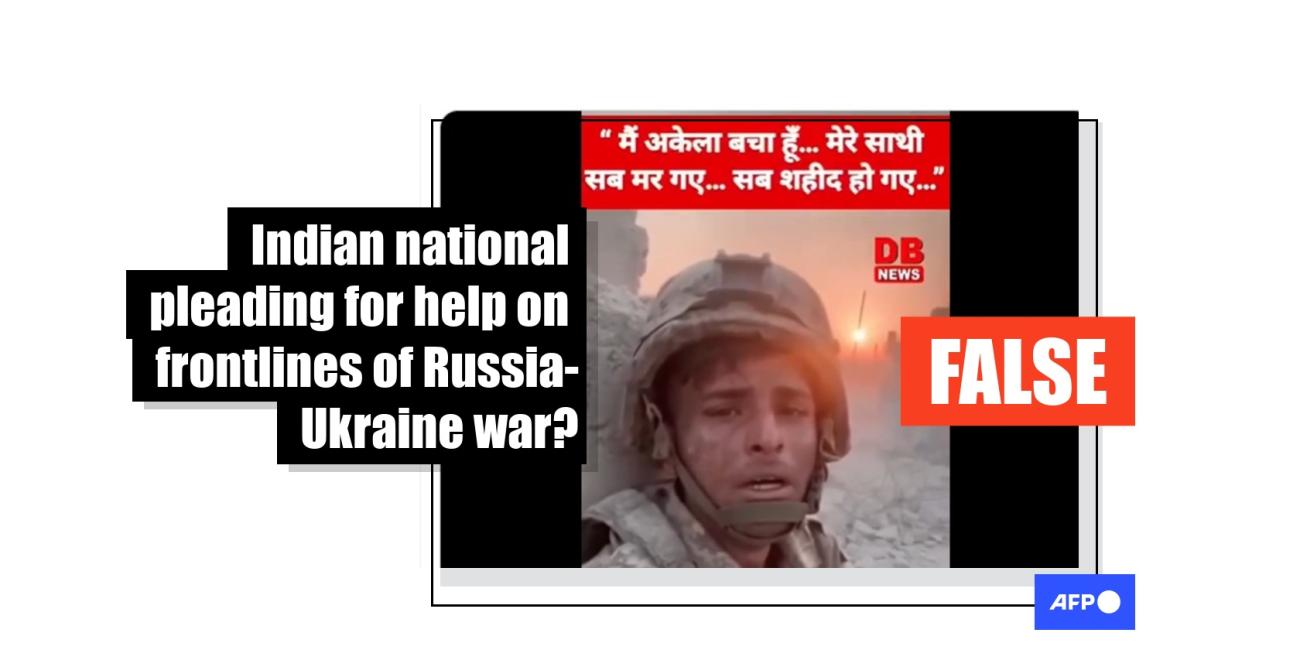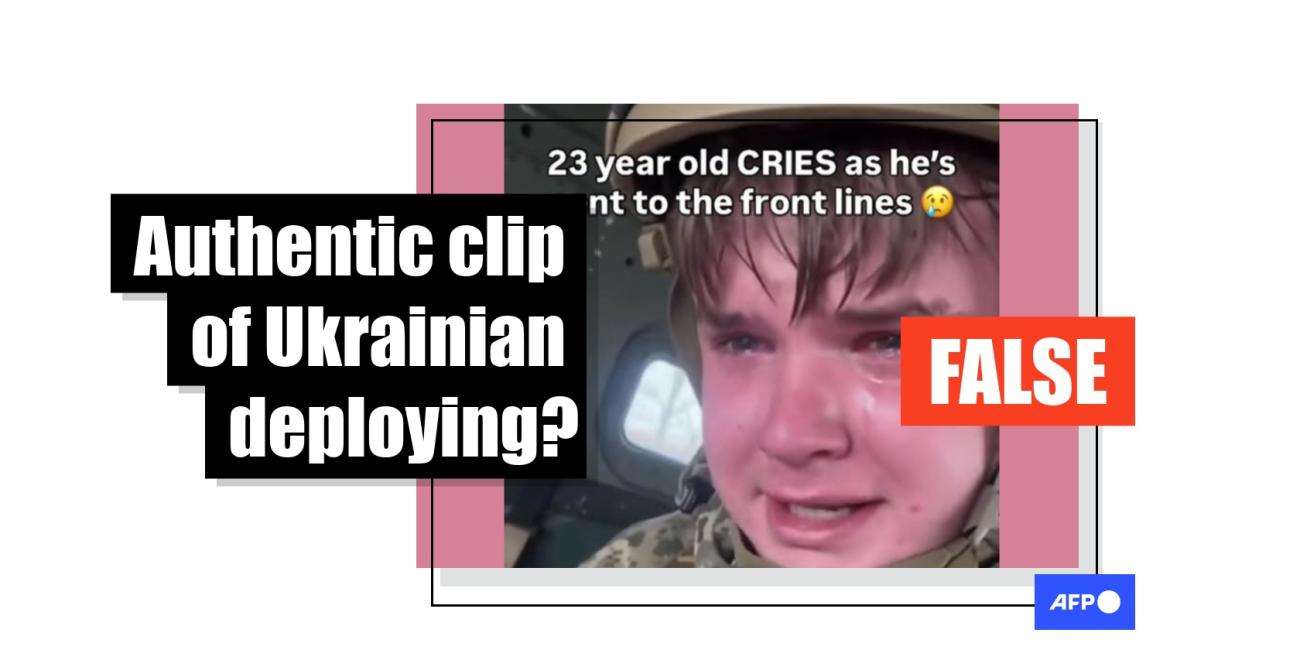
Posts falsely claim Ukraine issued stamps to honour Nazi figure from World War II
- This article is more than two years old.
- Published on October 20, 2023 at 14:43
- Updated on October 23, 2023 at 08:50
- 5 min read
- By Tonye BAKARE, AFP Nigeria
"The Ukrainian Postal Service is now issuing stamps with the face of the WW2 Wafen SS Nazi Galicia cretin Yaroslav Hunko while Poland will seek his extradition from Canada," reads a post shared on Facebook on September 27, 2023.
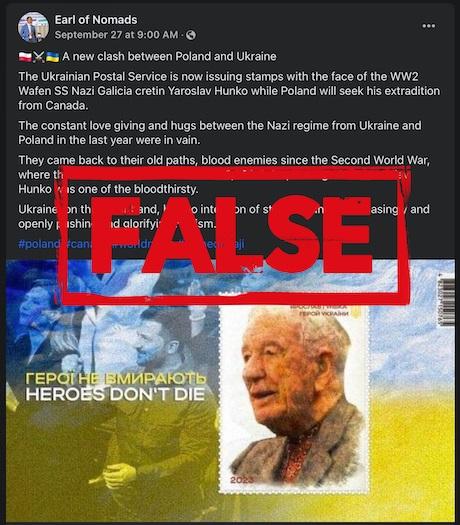
The post also labels Ukraine and Poland as "Nazi regimes".
It includes what looks like a postage stamp with a barcode in the top right corner, an image of an elderly man and the caption "Heroes don’t die".
The account that published the claim in Africa is notorious for its Russian bias and for sharing disinformation. The same claim appeared in other languages including Polish, Bulgarian, Russian, French and Dutch.
It also circulated on X (formerly Twitter) and Telegram here, here and here.
War crimes accusations
The Canadian parliament honoured Hunka, 98, when Ukrainian President Volodymyr Zelensky visited in September.
The SS-Galizien Division, in which he served during World War II, was created by the Germans in occupied Ukraine in April 1943 after losing the Battle of Stalingrad (archived here).
Like the Ukrainian Insurgent Army, the division is accused of committing war crimes against Jews and Poles (archived here and here).
More than a million Jews were killed in Ukraine during the war, mostly from 1941 to 1942, by the Germans with the support or participation of their Ukrainian collaborators (archived here).
More than 100,000 Poles were killed (archived here), essentially by units of UPA, in the Volhynie massacre in 1943 (archived here). A part of the massacre was committed by the Galizien division, like in Huta Pieniacka.
The speaker of the parliament Anthony Rota celebrated Hunka (archived here) as a "Ukrainian-Canadian war veteran from the Second World War who fought for Ukrainian independence against the Russians". He also called him "a Ukrainian hero and a Canadian hero".
The public endorsement generated so much controversy that Rota and Canadian Prime Minister Justin Trudeau were forced to apologise (archived here). Rota later stepped down from his position (archived here).
Critics said Rota’s remarks ignored the fact that Hunka fought with the 14th Waffen Grenadier Division of the SS, a Nazi military unit whose crimes against humanity during the Holocaust are well-documented.
However, the claim that Ukraine launched a stamp to celebrate Hunka is false.
Different stamp
AFP Fact Check zoomed in on the barcode on the purported stamp to reveal the numbers "4823027150765".
A search for the code on barcodelookup.com, a tool designed to provide information on barcodes, showed a different stamp named "Free. Unbreakable. Invincible". It was launched in August 2022 (archived here).

The same stamp is listed on the website of the Ukrainian postal service, Ukrposhta (archived here).
According to the website, the "wartime stamp" paid tribute to important symbols from the Russian-Ukraine war such as the Mariupol theatre (archived here) that sheltered Ukrainians, women shielding their babies in a subway from Russian missiles (archived here) and the Ukrainian forces. There was no reference to Yaroslav Hunka (archived here).
The stamp celebrated the "indescribable resilience" Ukrainians showed in the face of the war, the website said.
The fake stamp is not listed on the website.
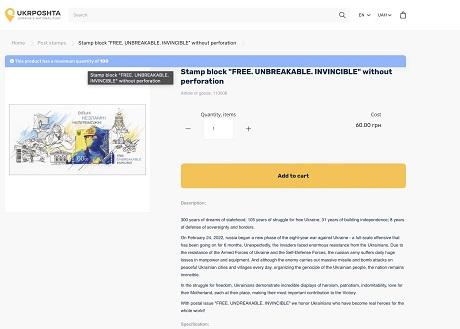
All official Ukrposhta stamps are available on the Ukrposhta website (archived here), among them the special collection issued for the wartime stamps. After the invasion by Russia in February 2022, such war stamps have been regularly released for collectors.
The fabricated stamp does not feature on the site. A search with the Wayback Machine tool of the post's archived web pages dated September 26 and September 28, 2023 - the earliest available archives after the Canadian parliament incident on September 22 - also failed to reveal any traces of the stamp.
Furthermore, the clothes Hunka wore in the photo used in the fake stamp bear striking similarities to his attire when he was honoured by the Canadian parliament in September 2023, more than a year after the stamp from where the barcode was taken was launched (archived here).
Screenshots show the similarity between the clothes Hunka wore at the Canadian parliament and in the fake stamp, taken on October 17, 2023.
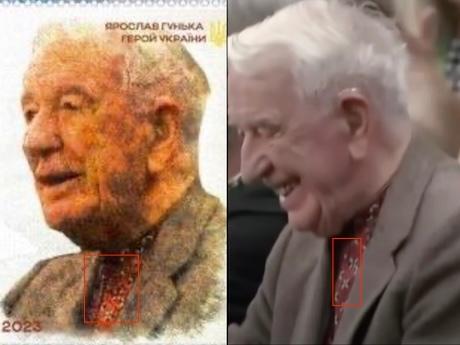
Never on sale
An AFP journalist visited the central post office in Ukraine’s capital city of Kyiv to ask if the fake stamp was on sale. An official said such a stamp was never on sale.
"Ukrposhta did not issue a postage stamp with the image of Yaroslav Hunka and has nothing to do with the situation," said the Ukraine postal service in an email to AFP Fact Check.
Meanwhile, Poland’s outgoing education minister Przemyslaw Czarnek had described Canada’s recognition of Hunka as "scandalous".
Writing on X, he said he would push for an investigation and Hunka’s possible extradition if he was found to have committed crimes against Poles and Polish Jews (archived here).
"I have taken steps towards a possible extradition of this man to Poland," he wrote on September 26, 2023.
Russia made a similar threat, according to an article in The Moscow Times (archive here).
Russian invasion of Ukraine
Russian President Vladimir Putin announced the invasion of Ukraine in February 2022, claiming that he wanted to demilitarise and "denazify" its neighbour, even though Zelensky is Jewish and lost family members in the Holocaust (archived here).
Rota’s faux pas in parliament gave the Kremlin another opportunity to label Ukraine’s leadership Nazist sympathisers (archived here).
False claims echoing the Moscow-driven narrative portraying Ukrainian leaders as "Nazis" have flooded social media since the start of Russia's invasion.
Find AFP Fact Check's disinformation coverage of the war in Ukraine here.
October 23, 2023 Corrected "AFP Fact Check" in summary
Copyright © AFP 2017-2026. Any commercial use of this content requires a subscription. Click here to find out more.
Is there content that you would like AFP to fact-check? Get in touch.
Contact us
